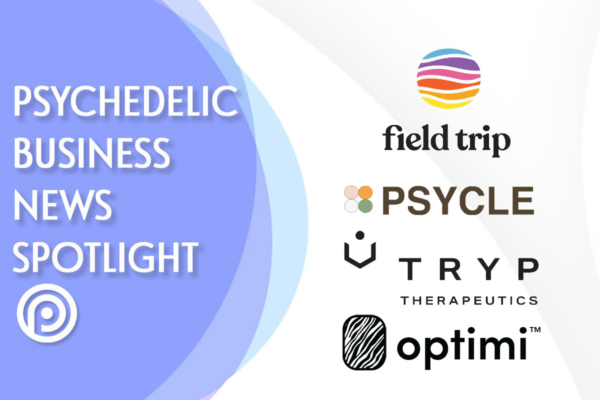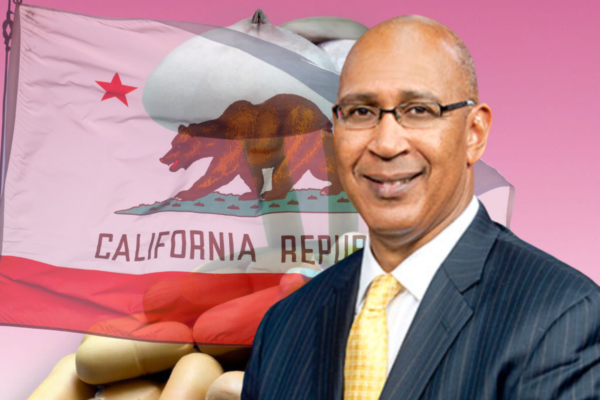
Psychedelics reform is sweeping the country, and if advocates in Illinois are successful, the Prairie State may one day join Oregon in adopting framework to support use of entheogenic medicine.
“We’re proposing a broader decriminalization framework for a wide range of psychedelics,” Jean Lacy of the Illinois Psychedelic Society tells Psychedelic Spotlight of the legislation she’s helping state Rep. La Shawn Ford, a Chicago Democrat, shape before he introduces the bill next year.
In its current form, the Illinois Compassionate Use of Natural Plants and Fungi Act (ICUNPFA) intends “to decriminalize the possession, use, cultivation, production, creation, analysis, giving away, and delivery of natural plants and fungi,” including psilocybin, psilocin, ibogaine, mescaline (except from peyote), and dimethyltryptamine (DMT). However, Ford has publicly acknowledged the bill could go through many changes before he introduces it in the legislature.
ICUNPFA would also establish an Illinois Psilocybin Advisory Board to advise the Department of Public Health regarding the provision of psilocybin and psilocybin services, as well as establish licensing categories for psilocybin service centers, facilitators, manufacturers, and testing facilities.
“We’re also providing a framework for psychedelics to be used in a supervised setting, and to be purchased from a service center and taken off site. We’re very aware people are using these substances regardless, so that translates to regulating a safe product for people to consume,” explains Lacy.
The Illinois native, yoga therapist, and mushroom cultivator helped build a ketamine infusion center in Chicago before founding the state’s first psychedelic society in 2020. She’s joined in this psychedelics reform effort by Vilmarie Narloch, PsyD, a clinical psychologist who co-founded Sana Healing Collective, a nonprofit offering psychedelic preparation and integration services.
“[This bill] has an eye on equity and accessibility, while ensuring the right voices are included in the development of the services program,” Narloch tells Psychedelic Spotlight.

“We’re also adjusting [the legislature] to make it accessible to the regular Illinoisan to own a service center or be a licensed service provider, rather than only corporate entities being the ones to nab those licenses,” Narloch elaborates. “We’re not able to go for decriminalization [of all drugs] with this bill, not for lack of trying. But we have written that this [Psilocybin Advisory Board] could review other drugs and make recommendations about rescheduling or decriminalizing. As a harm reductionist myself, I want to ensure that people who use other, more stigmatized drugs can hopefully earn some protection.”
A devastating issue with the War on Drugs is that Black, Indigenous, and people of color are disproportionately affected by drug laws. When asked how this bill will ensure protection and equal access for BIPOC, Vilmarie states, “The primary piece is decriminalization, but also, we’re looking at different equity considerations to ensure there are providers and service owners of color, to best address the needs of people of color. It’s been a huge limitation of the psychedelic movement, as certainly a limitation in the research, that there’s not enough research participants and therapists of color.”
Despite positive clinical trials results and individual testimonials that have flooded the media in the last decade, many people are still apprehensive about allowing psychedelics into their states and communities. Lacy believes the best way to break this taboo is through education, and encourages the Illinois community to ask as many questions as they want.
“Come get educated, come ask questions, and start engaging in conversations,” she says. “Also, truly think about the harms of prohibition and the broader ripple effect of when children grow up without their parents, because of low level drug offenses. Parents are struggling to develop relationships with their children because they’re being penalized for single instances of drug use.”
Narloch adds, “Start talking to your friends, family, and representatives about it. There’s lots of [information] in the media that can be great conversation starters for psychedelics for mental health. ‘What’s that about? What do you think about it?’ Rep. Ford is hoping to socialize people to the idea of [psychedelics as therapeutics], because this is coming whether we want it or not.”
To get involved: Support and/or join Student’s for Sensible Drug Policy, the Illinois Psychedelic Society, Sana Healing Collective, Drug Users Health Collective of Chicago, Psychedelic Safety, Support, and Integration of Chicago, and vote/advocate for drug policy reform on the municipality or state level.





